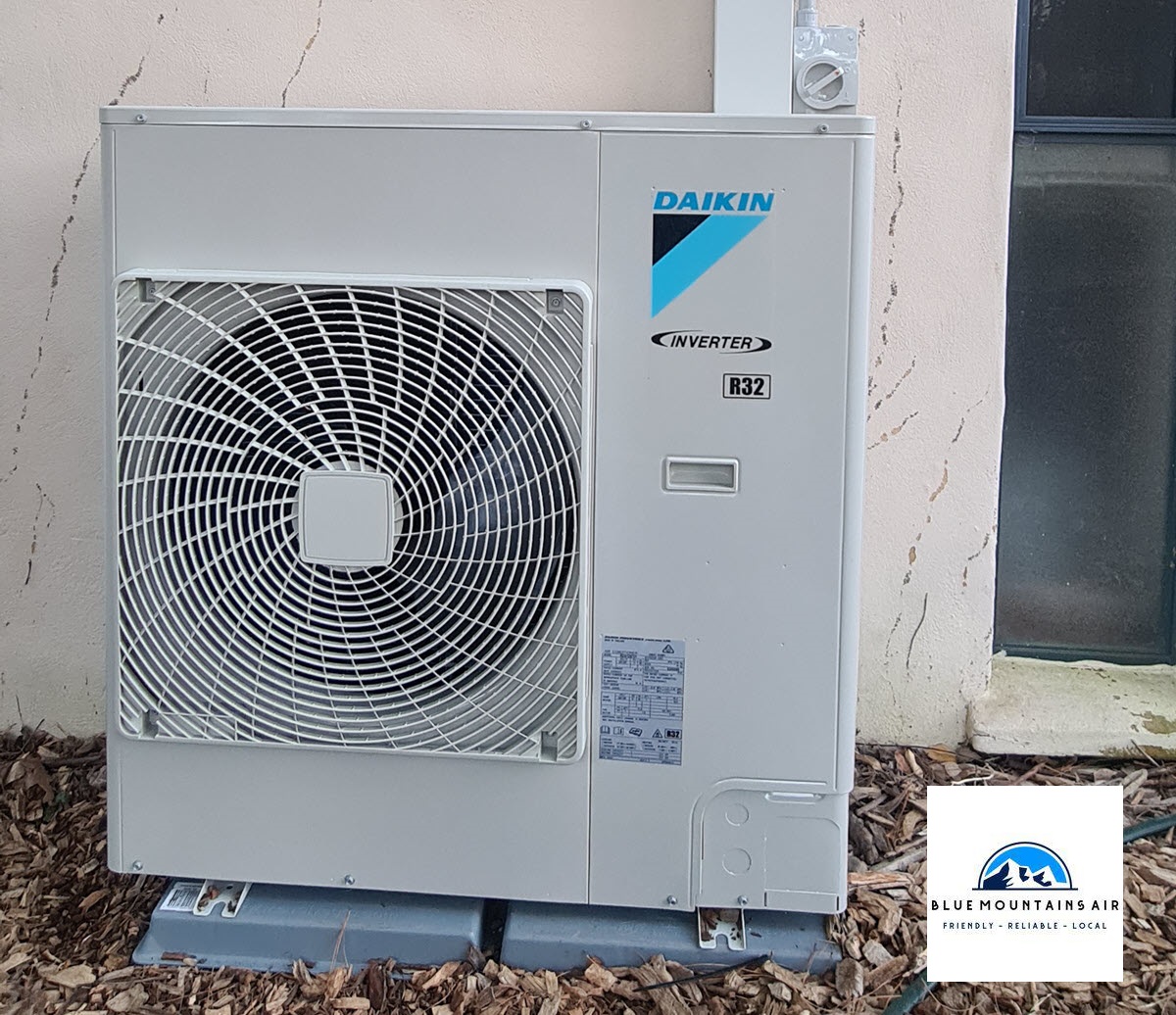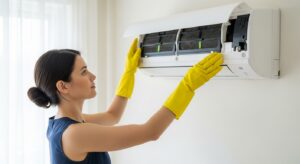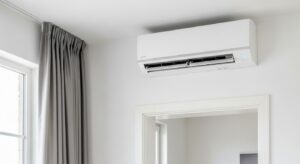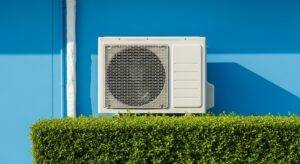Air conditioners are a critical part of staying comfortable during the warmer months in Australia. However, like any mechanical system, they can encounter issues if not maintained properly. Understanding common air conditioner problems and knowing how to prevent them can save you from costly repairs and uncomfortable days. This guide covers the most common AC issues and offers tips on how to prevent them to keep your system running smoothly.
1. Air Conditioner Not Cooling Properly
One of the most common complaints from homeowners is that their air conditioner isn’t cooling the house as effectively as it should. This issue can arise from a variety of causes, including dirty air filters, blocked vents, or low refrigerant levels. Dirty filters can block airflow, causing the unit to work harder than necessary, while blocked vents can disrupt the distribution of cool air. Low refrigerant levels, on the other hand, reduce the cooling power of the system, making it less efficient.
Prevention: To prevent this issue, it’s important to regularly clean or replace your air filters every 1-3 months, depending on usage. This simple step can significantly improve airflow and efficiency. Additionally, keep an eye on your vents to ensure they’re free from obstructions like furniture or dust. If you suspect low refrigerant levels, this should be addressed by a professional HVAC technician as it requires proper handling and equipment.
2. AC Leaking Water
Water leakage is another common problem with air conditioners. This can be caused by a blocked drain pipe or frozen evaporator coils. When the drain pipe is clogged, water backs up and eventually leaks out of the system. Frozen evaporator coils are often the result of restricted airflow or low refrigerant levels, which causes moisture to accumulate and freeze around the coils, leading to leaks when the ice melts.
Prevention: Regular maintenance is key to preventing water leaks. Clean your AC’s drain line to ensure water can flow freely, and have a technician inspect and clean the evaporator coils during routine servicing. Keeping your air filters clean will also help prevent coil freezing by maintaining proper airflow.

3. Air Conditioner Making Unusual Noises
Unusual noises coming from your air conditioner can indicate a range of issues, from loose components to fan problems or debris in the system. Rattling, buzzing, or grinding sounds are common indicators that something inside the unit may be loose, such as screws, belts, or other parts. These noises can also be caused by debris like leaves or twigs getting trapped in the outdoor unit.
Prevention: Preventative measures include scheduling regular maintenance to tighten any loose parts and keeping the area around the outdoor unit clear of debris. It’s also a good idea to check for loose components inside the unit when unusual sounds first appear to avoid more serious damage.
4. AC Unit Turning On and Off Frequently (Short Cycling)
Short cycling occurs when the air conditioner turns on and off more frequently than usual, which can lead to higher energy consumption and strain on the system. This issue is often caused by thermostat problems or an incorrectly sized unit. If the thermostat is malfunctioning or placed in an area that doesn’t accurately reflect the home’s temperature, the AC may shut off prematurely. Additionally, an oversized air conditioning unit can cool the house too quickly, causing it to shut off and on more frequently than it should.
Prevention: To prevent short cycling, ensure your thermostat is properly calibrated and located away from heat sources like direct sunlight or appliances. If you’re installing a new AC system, consult a professional to make sure you choose the correct size unit for your home. Proper sizing is essential for efficient cooling and system longevity.
5. High Energy Bills Due to AC Use
If your energy bills are higher than expected, your air conditioner might not be running efficiently. This can be caused by an old or inefficient unit, poor insulation in your home, or running the AC on inefficient settings. Additionally, if the system is clogged with dirt or the refrigerant levels are low, it will use more energy to cool your home.
Prevention: Regular servicing is key to maintaining the efficiency of your air conditioner. Consider upgrading to a newer, energy-efficient model if your current unit is old or frequently requires repairs. Ensure your home is well-insulated to prevent cool air from escaping, and use your thermostat wisely. Setting the temperature a few degrees higher when you’re not at home can make a significant difference in energy consumption without sacrificing comfort.
6. AC Blowing Warm Air
If your air conditioner is blowing warm air, it could be due to a dirty coil, refrigerant leaks, or a malfunctioning thermostat. Dirty coils prevent the unit from effectively absorbing heat, while a refrigerant leak reduces the system’s ability to cool the air. A faulty thermostat that isn’t reading temperatures accurately can also cause the AC to blow warm air.
Prevention: To prevent your AC from blowing warm air, make sure to clean or have the coils cleaned during regular air conditioning service or maintenance. Additionally, have your refrigerant levels checked annually and repair any leaks immediately. Keep your thermostat in good working order by checking its settings and functionality regularly.

7. Foul Odours Coming from the AC
If you notice unpleasant smells coming from your air conditioning unit, this could be a sign of mould growth in the ductwork or stagnant water in the drain pan. Mould can thrive in damp areas, and stagnant water from clogged drain lines can lead to bacterial growth, which can cause musty or foul odours.
Prevention: Prevent mould and bacteria growth by regularly cleaning your AC’s ducts and ensuring proper drainage. You can also use mould-resistant filters to help improve air quality. If you detect persistent odours, consider having your ducts professionally cleaned.
8. Electric Control Failure
Electric control failure is a common issue in older air conditioners or units that cycle on and off frequently. Over time, the compressor, fan, and motor can wear out, and electrical components such as terminals and wires may become corroded. This can cause the AC to stop working entirely.
Prevention: To prevent electric control failure, have a technician inspect your unit’s electrical components during routine maintenance. Using a surge protector can also help safeguard the unit against electrical surges that could damage the system’s internal components.
9. Thermostat Problems
Thermostat issues can lead to improper cooling or the system not turning on at all. These problems can arise from faulty wiring, improper calibration, or an outdated thermostat. If the thermostat is not reading the temperature correctly, the air conditioner won’t function as it should, leading to discomfort and inefficient cooling.
Prevention: To prevent thermostat problems, regularly check the accuracy of your thermostat by comparing it to a separate thermometer. If your thermostat is outdated, consider upgrading to a programmable or smart thermostat, which can help regulate temperature more efficiently. These modern thermostats allow you to control settings remotely and optimise your cooling schedule, which can reduce energy usage.
Related Questions
What is the most common cause of AC failure?
The most common cause of AC failure is lack of maintenance. When filters, coils, and other components become clogged with dust and debris, the system works harder, leading to increased wear, overheating, and eventual breakdowns. Regular maintenance, such as cleaning filters and scheduling annual servicing, helps prevent this issue.
What is the most common part to fail on an AC unit?
The capacitor is one of the most common parts to fail in an AC unit. Capacitors provide the initial power boost for the compressor and fan motors, and over time they can wear out or overheat. Replacing a capacitor is a relatively simple fix but crucial to prevent further system damage.
How do I figure out what’s wrong with my air conditioner?
To troubleshoot your AC, start by checking the thermostat settings, ensuring it has power, and verifying the air filter is clean. If the unit is running but not cooling effectively, inspect the outdoor unit for debris, and listen for any unusual noises. For persistent issues, calling an HVAC technician for diagnosis is recommended, as some problems, like refrigerant leaks or electrical faults, require professional expertise.
Conclusion
Proper maintenance and early detection of issues are essential to ensuring your air conditioner runs efficiently throughout the summer months. From cleaning filters and coils to addressing refrigerant issues and inspecting electrical components, taking preventive steps can save you from costly repairs and keep your home comfortable during the hottest days. Regular professional servicing is the best way to ensure that minor issues don’t become major problems, while simple maintenance tasks like filter changes and thermostat checks can be done by homeowners to keep their AC units running smoothly.





